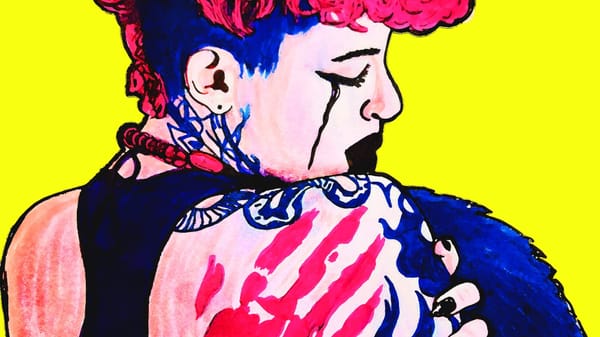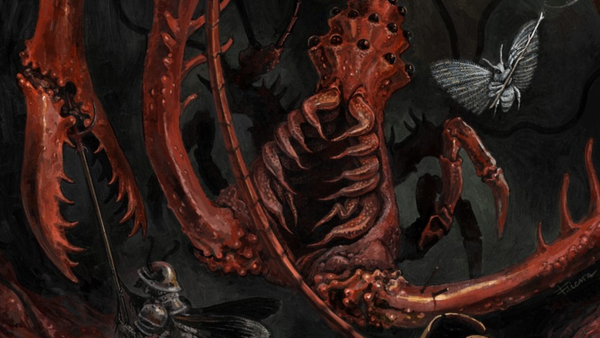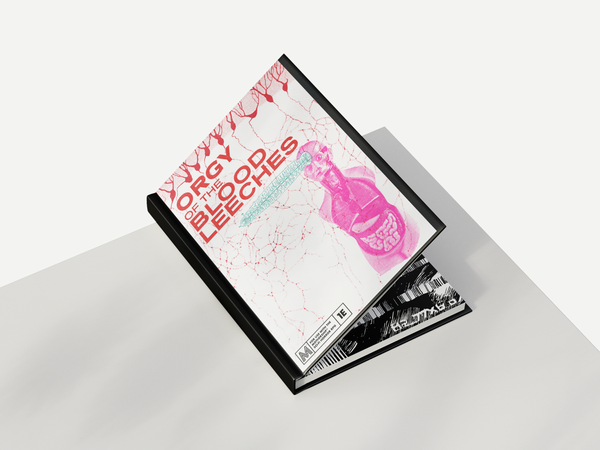Balancing Black joy in creating Black horror
The second of two interviews with the cast of Harlem Hellfighters Never Die
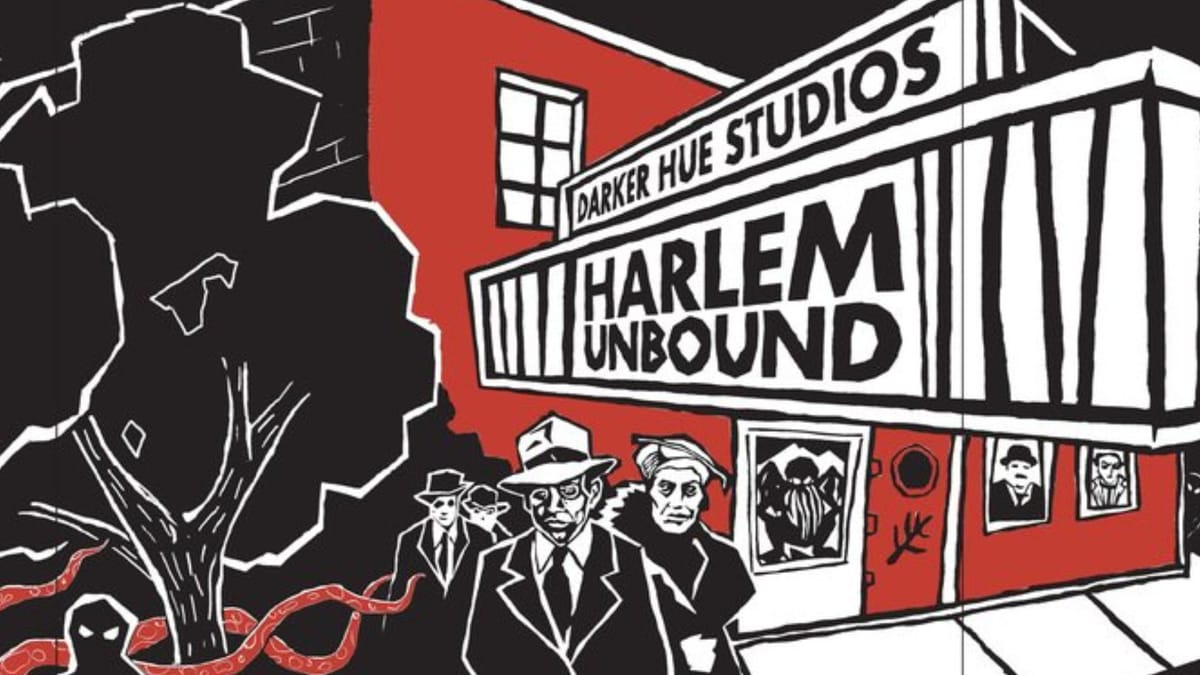
Harlem Hellfighters Never Die builds on the tradition of Black Lovecraftian Horror in a way actual play is uniquely equipped to explore. As we discussed in the first part of this interview, the series uses the mechanics of CoC—specifically the Harlem Unbound supplement by Chris Spivey—to examine the uniquely eldritch horror of being Black in America. A joy-filled, community-focused (and recently award-nominated) addition to the horror canon, Harlem Hellfighters Never Die is a testament to what actual play can achieve as an artform when the people making it are truly in community with each other.
"It's the difference between coming in as you are and coming in with a very intentional persona."
Actual play is a medium that thrives in authenticity. Witnessing the real-time reactions of the characters and the actors portraying them is a central appeal of APs. There is no truer magic than sharing in the player’s terror as the facilitator describes a horrific realization, or erupting in laughter alongside them in a moment of collective relief.
That being said, authenticity can only thrive if it is actively encouraged and embraced—not mined for trauma porn or ally points. The TTRPG ecosystem positions itself as being more progressive and inclusive than other industries. However, the hundreds of replies to a recent viral tweet show how often this progressive veneer can be little more than symbolic.
The tweet—which was initially posted by Mark J, an administrator for the BIPOC-led co-op Apochromatic Unlimited—highlighted a number of issues individuals of the global majority face in the TTRPG industry. The sheer scope of problems presented, from microaggressions to systemic inequities, would require its own series of articles beyond this one interview.
One notable issue the cast of Harlem Hellfighters explicitly wanted to explore was the quiet violence of tokenism, which is rampant in the actual play space. Exploiting other people’s identities as marketing tools is not only fucked up, it also robs productions of their full potential. Tokenism reduces the infinite range of experience and perspective to aesthetic set dressing. Great stories cannot be told if those telling it do not feel supported in exploring the messy nuance of being human. Even more, certain stories can only be told properly if there is a shared understanding of its themes.
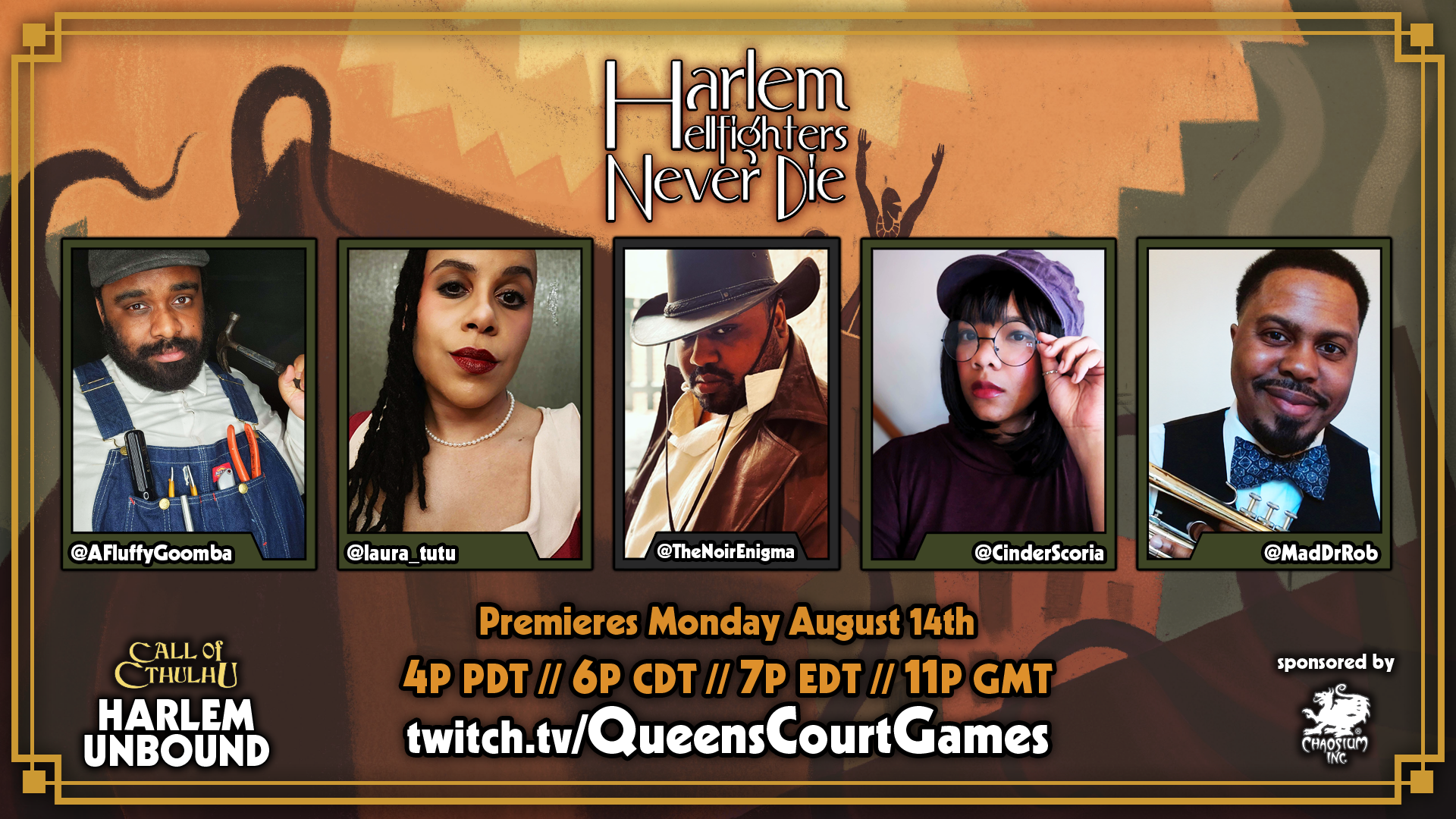
Harlem Hellfighters Never Die is so successful as a work of genre fiction because the supernatural elements of horror engage directly with the artists’ lived experiences. The horror of the show’s world may be fictional, but the reality it’s rooted in is one every member of the cast is intimately familiar with. Cognizant of Lovecraft’s bigoted origins, the Queen’s Court Games production builds on the Black Cthulhu canon, which has had a revival in recent years with shows like Lovecraft Country and novellas like Ring Shout by P. Djeli Clark and The Ballad of Black Tom by Victor LaValle.
In the second installment of my conversation with the cast of Harlem Hellfighters Never Die, we discuss the importance of Black Joy in exploring Black Horror, how their identities inform their decisions in and out of game, and the difference between playing in community vs playing as a representative of your community.
This interview was edited for clarity, length, and flow.


